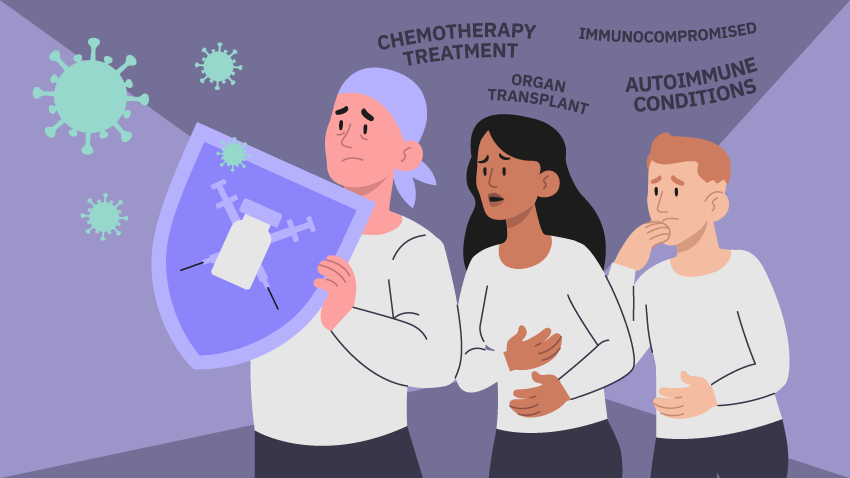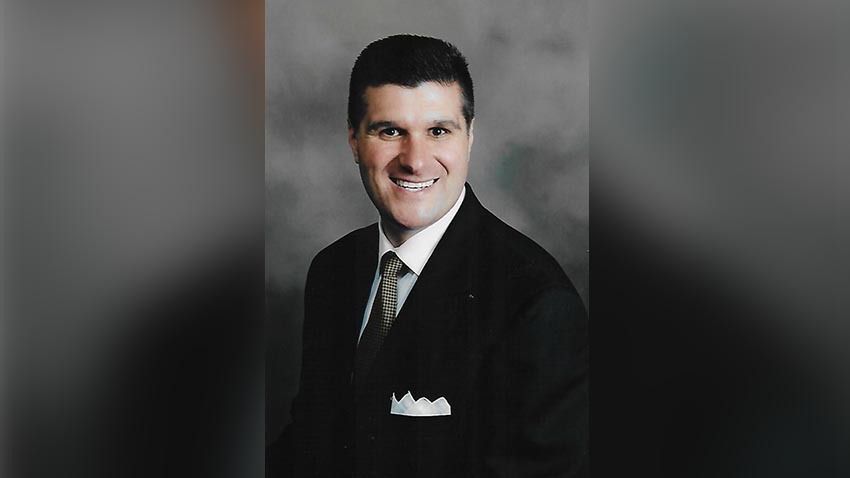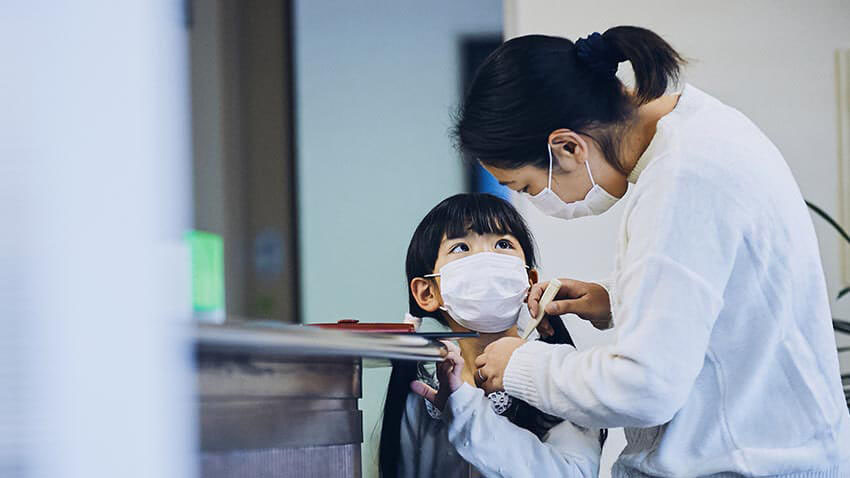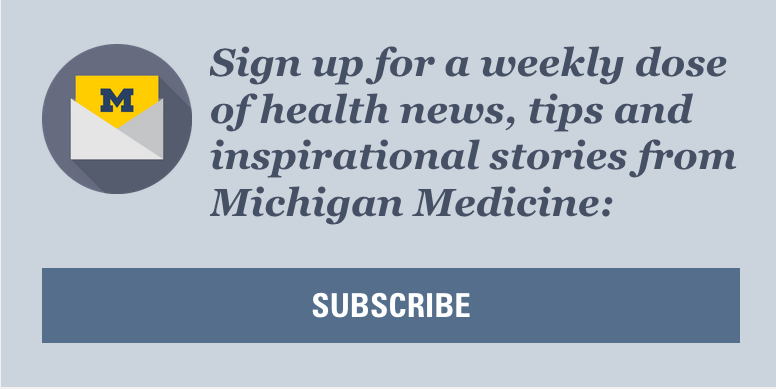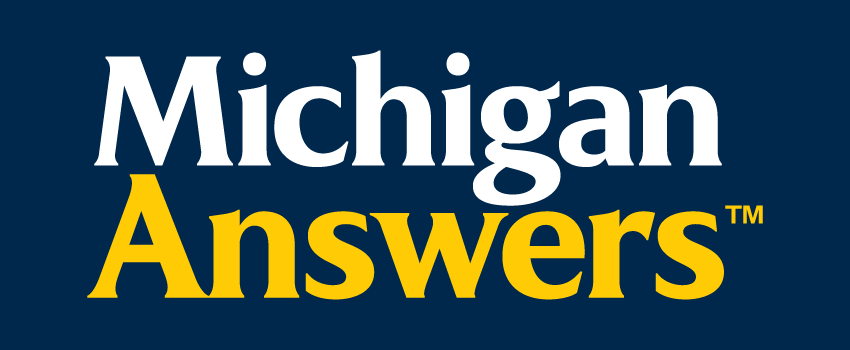Why do some people need a third dose of the COVID vaccine?
We know more now about how immunocompromised people — including organ transplant recipients, certain cancer patients and those on medications that severely suppress the immune system — respond to the COVID vaccine.
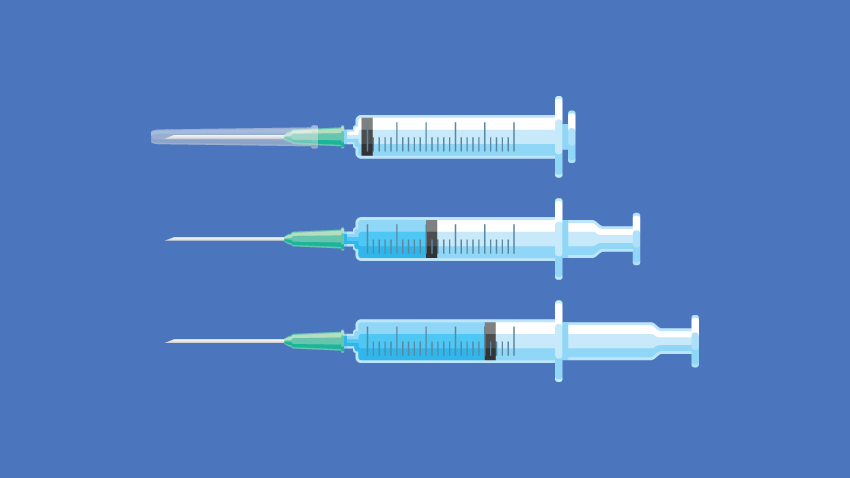
随着Covid-19的大流行的继续,科学家们收集了有关冠状病毒的更多数据,这些数据一直在全球范围内发挥混乱,以及可能需要采取的措施使得共同疫苗长期有效。
For those who are immunocompromised, either because of a condition or a medication, there’s been much to learn.
Other than those with HIV, immunocompromised people were not included in the large clinical trials that studied the COVID vaccines. So researchers often had to make educated guesses about how this population — and subgroups within it — would respond to the shots that were intended to protect people from not only contracting and spreading the coronavirus but from becoming severely ill with COVID-19 or dying from it.
Now that more studies have been conducted that feature this group, we have more information, which led the FDA to authorize a third dose of the mRNA vaccines for immunocompromised people.
Michigan Health坐下丹尼尔·考尔(Daniel Kaul),医学博士,主任Transplant Infectious Disease Service at Michigan Medicine,找出科学家对Covid疫苗和免疫功能低下的疫苗的收集到了什么,以及他们仍希望找到的答案。
What evidence has emerged when it comes to how protected immunocompromised patients, specifically organ transplant recipients, are against COVID-19 once they’re vaccinated?
How protected immunocompromised people are remains a bit unclear.
What we can discern from some messy data is that clearly people who are immunosuppressed, who have been vaccinated, are getting admitted to the hospital with severe COVID.
There’s a network of 21 large adult hospitals under the umbrella of the CDC, called the IVY network, that University of Michigan Medical School associate professor of microbiology and immunologyAdam Lauring, M.D., Ph.D., did all the sequencing for.
Their study saw that there was an efficacy against hospitalization of immunocompromised people of about 50% instead of the 95% or more that we saw in immunocompetent people, those whose immune systems aren’t weakened. That certainly isn’t definitive — there are some other studies that may demonstrate a bit better protection than that — but that created some concern.
We also didn’t expect the Delta variant to be so contagious and to cause so many more cases, which has created an increased risk to transplant patients.
参见:年代hould you get a third dose of COVID vaccine?
Finally, we saw that in other countries, in Israel and in the United Kingdom, for example, and then also starting in the United States, there did seem to be a decrease in the ability of the vaccine to prevent infection, although the vaccine still maintained a tremendous ability to protect immunocompetent people from hospitalization and severe disease.
But that did create some concern that immunocompromised folks may be even more vulnerable, both because vaccinated people could potentially spread it (not nearly as much as unvaccinated people, but could still potentially spread it) and also, if that waning of the vaccine’s protection was seen in immunocompetent people, perhaps it would be worse in immunocompromised people.
All of which led to more testing of third doses of the COVID-19 vaccine for immunosuppressed people. What did we learn from those studies?
It’s not surprising that the vaccine works less well in immunocompromised people than the immunocompetent. That's generally true of other vaccines. But because immunocompromised people weren't included in the clinical trials of the COVID-19 vaccine, there was no idea to know how much less well it worked, whether additional doses would be helpful and so forth.
WhenMichigan Healthpublished its explainer, “Should I still wear a mask if I’m immunocompromised?” a few months ago, we had just a hint from a very small, not very well standardized report, where people got third doses that were immunocompromised, and the researchers checked antibody levels and saw that there was some response in people who didn't respond initially. It was hard to know exactly what to make of that in terms of how meaningful that was.
There have since been two major pieces of data that have helped fill in the story in different ways.
One was in France, where they just decided to give everybody who was immunosuppressed and had a transplant a third dose, usually 28 days after the second dose of the Pfizer-BioNTech vaccine. And what they saw was that there was a significant increase in the number of people who received the third dose who developed antibodies after the third dose, but not the second dose. Again, we didn’t really know what that meant.
After that, in Toronto, they did a very nice study where they actually randomized people who'd had transplants to either not get a third dose or to get a third dose 28 days after the second dose, and they measured T cell responses and antibody responses, which are different elements of the immune system. They found that even in people who responded to the second dose, the antibody responses were significantly higher.
SEE ALSO: Masks and the delta variant
另外发现,对于那些didn't respond to two doses, that a significant proportion of them responded to the third dose, again in terms of antibody levels, and they attempted to define a certain threshold of antibodies because we haven’t known what level of antibodies you need to be protected from developing COVID-19.
Do antibody levels seem to correlate with protection? Given the different components of the immune system, the CDC and health systems across the country were stressing not to put too much weight on antibodies as a metric of immunity for a while.
现在,我们看到了更多有关抗体水平与COVID-19的保护水平相关的更多数据。很明显,如果您的抗体水平较高,那么您患有症状性疾病的可能性就较小。
And that's not terribly surprising, because if you think about how COVID works, it's this virus, and it gets in your nose or your mouth or your eyes and then it wants to attach to these receptors. If there's a whole bunch of antibody running around that interferes with that process, it's going to be hard for the virus to establish a productive infection.
但是,在此背景下,重要的是要知道每年都有人类冠状病毒流传,它们会给我们感冒。
你可以合同其中一个冠状病毒和then contract the same one a year later. But you don’t get really sick; you just get a cold. That’s because that’s how our immune system works. The antibody levels go down, so they don’t necessarily protect us against infection, but as soon as it’s there they know what it is, they ramp up quickly and they prevent the development of severe disease by and large.
That’s what so far our COVID vaccines have done in immunocompetent people. You may get sick, but you’re very unlikely to get severe pneumonia and wind up in the hospital. And that’s because our immune systems have been educated.
在免疫抑制者中教育免疫系统更加困难。
Hence the FDA’s authorization of a third dose for this population. What are your thoughts about this decision?
FDA处于非常困难的位置,他们很少面对。他们是一个非常数据驱动的组织,他们想确保药物安全有效,他们希望看到大型研究以确认在提出建议之前。
But in this case, they were not particularly concerned about safety since we're not talking about a new drug. We’re just talking about giving essentially a third dose of the same drugs (which probably is better thought of as a third dose in the primary series rather than as a booster dose since you're trying to generate an immune system response rather than boost a previous response.)
So they looked at the data and made the decision to expand the emergency use authorizations to allow a third dose of the Moderna or the Pfizer vaccine. (If you’ve received Pfizer, and you can't get access to a third dose of it, you can get Moderna and vice versa.)
Like Podcasts? Add the密歇根医学新闻休息上iTunesor anywhere you listen to podcasts.
在所有这些中,被免疫功能低下的人遗留下来,他们收到了约翰逊和约翰逊/詹森疫苗的单枪。我认为这确实令人不安,因为该疫苗可以工作,但也不做。而且,在紧急使用授权下,实际上没有法律机制,他们收到约翰逊和约翰逊以获得额外剂量的mRNA疫苗或约翰逊和约翰逊疫苗的人。
密歇根州医学中的很多患者都不属于这一类。我没有数字,但是绝大多数免疫功能低下的患者也接受了mRNA疫苗,而绝大多数美国人也接受了mRNA疫苗。但是,这仍然是一个真正的问题,希望我们很快就会为此提供进一步的指导,但是这些人现在陷入微风中。
What about antibody tests? Should immunocompromised people get those now?
不,我们仍然不建议在第三剂之前检查抗体水平。任何免疫功能低下的人都应该获得第三次剂量,因为它们的抗体水平都会上升,而不管它们最初是否开发抗体。那是一件好事。
谁有资格参加第三剂?
FDA这样做的方式(我认为合适)是不需要处方。
This isn't so much about being at an increased risk for severe COVID; it's about that these people need a three-dose vaccine to respond as well as the general population did to a two-dose vaccine, and that’s determined by the nature of your immune system.
Some people who should definitely get a third dose are those with solid organ or bone marrow transplants, cancer or autoimmune disease that require immunosuppressive medications.
[找到属于严重免疫抑制的保护者的人的完整清单,并鼓励他们获得第三次Dosein Michigan Health的文章“”Should you get a third dose of COVID vaccine?”]]
而且,如果您不确定是否有资格,请与您的医生交谈。
拜登政府刚刚建议,无论他们是否受到免疫功能良好,接受mRNA疫苗的每个人在第二次剂量后大约八个月都会拍摄助推器。有足够的数据支持这一点吗?
具有免疫能力的人(接受了两剂mRNA疫苗的人)目前仍受到很好的保护。我认为在这种情况下没有理由或需要用完并尝试获得助推器剂量,因此我现在不太担心这一点。目前,我当然不会得到第三次剂量。这样做的证据仍然不完整。
还有这个问题的疫苗资产。世界各地都迫切需要它。我认为很难证明出于任何FDA或CDC建议以获得助推器剂量是有道理的。但是我并不是说,对于免疫功能低下的人们来说,我认为第三剂是完全合适的。
Are there people who may still not respond to a third dose?
Yes. Even a third dose still leaves a significant number of solid organ transplant recipients with relatively low or unmeasurable levels of antibody. So unfortunately, continuing to practice social distancing and being careful to avoid exposure remains appropriate for that group of people.
但是,这一切都不应阻止人们接种疫苗。尤其是移植患者,如果患者患有不良预后,则有很大的风险。即使我们不能保证该疫苗将具有完全保护性,但这确实是我们提供的最好的东西。
Anything else to add?
In the future, when we have urgent problems like this, a broader array of people should be considered for early trials. That could include pregnant women and children, for instance, as well as immunocompromised people. It can be fraught to think about those things – ideally, you like to test things in the group that would be able to tolerate unanticipated side effects more. But nonetheless, I think it's worth discussing or, at least when early safety data is available, to start trials a little bit quicker, so we have actual answers.

